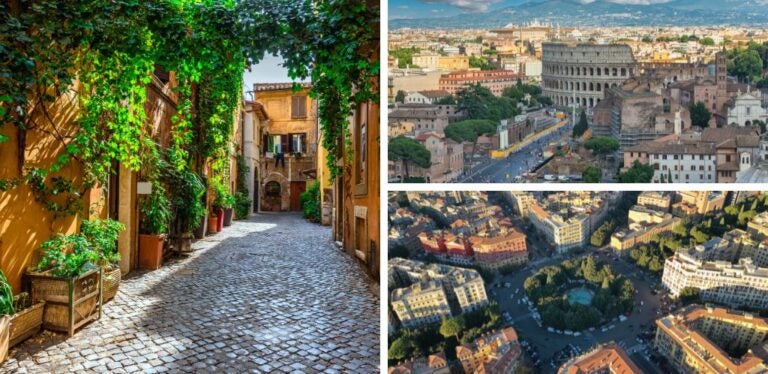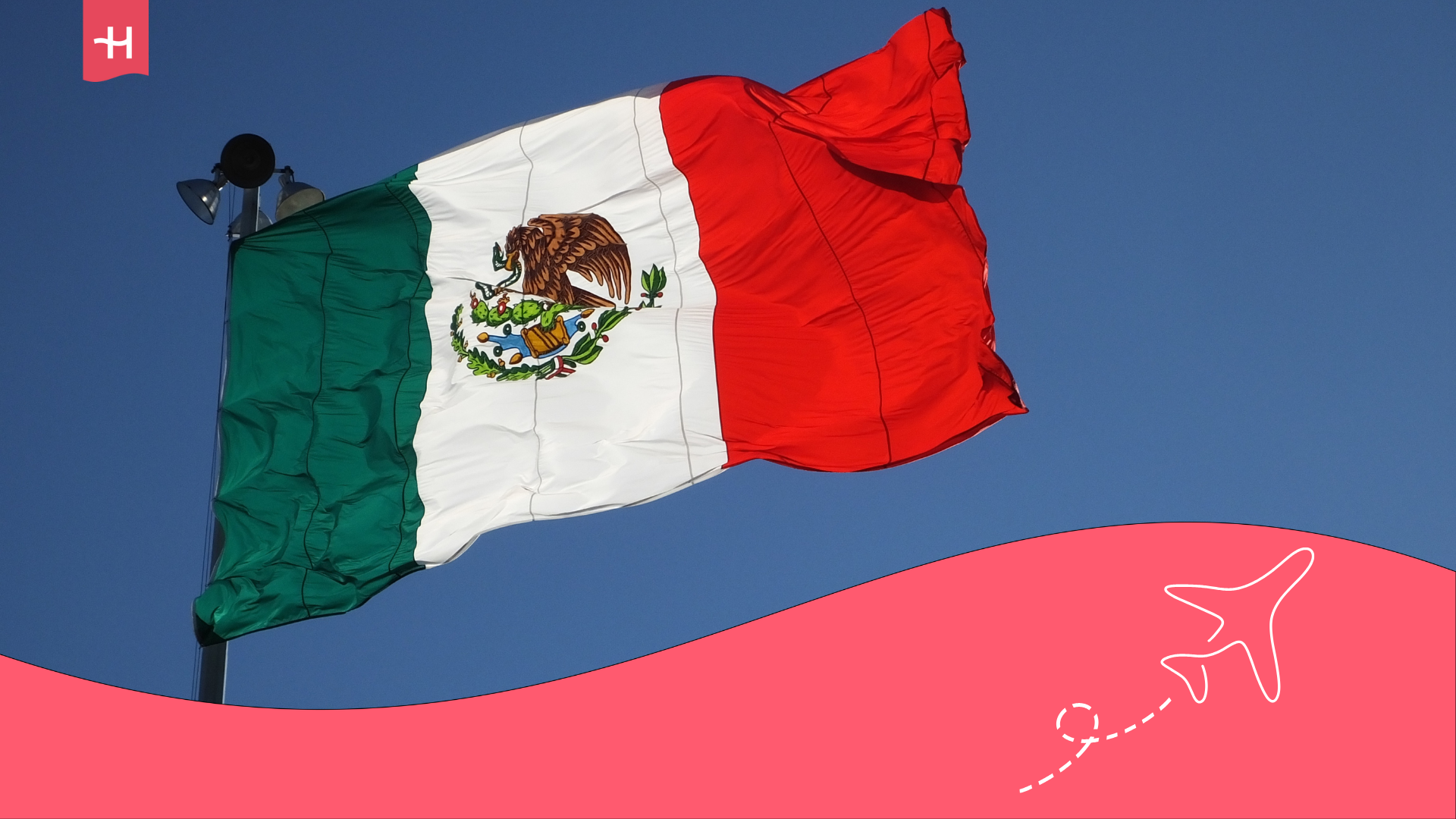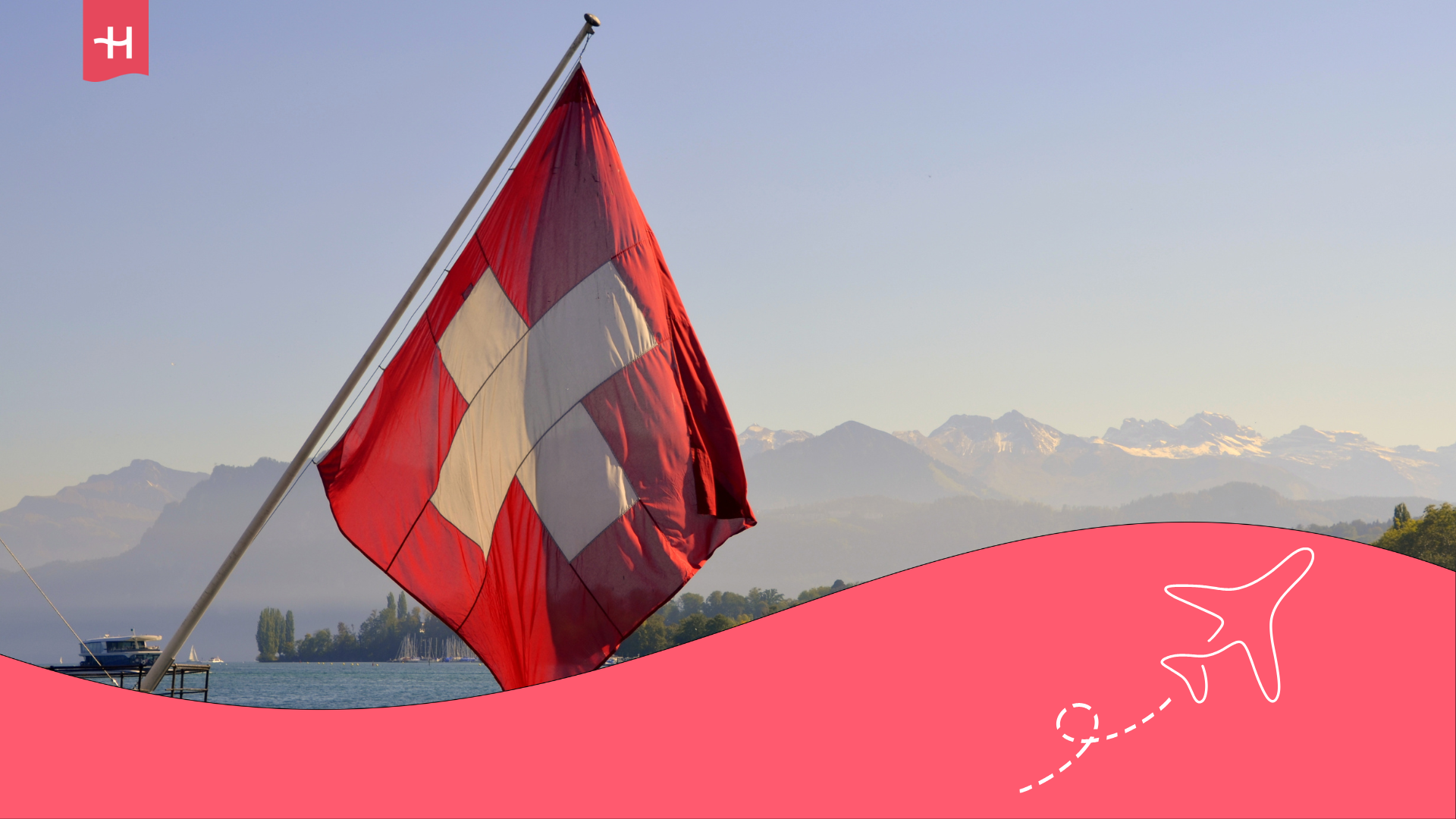Accommodation in Rome for long-term stays as a digital nomad
Planning to spend some time in the Eternal City? Discover the best accommodation in Rome for long-term stays, top areas, and where to stay.
Where to stay in Rome? The answer depends on whether you’re planning a quick trip to see the city’s highlights or staying longer. If you’re looking for accommodation in Rome for long-term stays, there are several factors to consider — from location and amenities to the neighbourhood’s vibe. Choosing the right home is one of the most important decisions when moving anywhere, so it’s not something to rush.
To help you, we’ve prepared a guide about accommodation and neighbourhoods. We’ll review the different types of long-stay housing available in the city. We’ll also discuss the best areas for expats, international students, and digital nomads. Join us and discover which area could become your new home in Italy’s capital.
Accommodation options for long stays in Rome
Before choosing your area in Rome, let’s talk about the type of place you need. What features should it have? When you’re just passing through a city, comfort doesn’t matter much. But if you’ll stay longer, your space must include certain amenities. You’ll also need a landlord willing to offer a long-term rental contract.
A quick search for flexible housing for students, digital nomads, or long-term travellers shows that the Eternal City has fewer options than other destinations. The range of colivings, for example, is much smaller than in other European capitals. Let’s see what kinds of temporary bases you can choose from:
1. Coliving in Rome
We already told you some time ago about the best colivings in Rome. They’re designed for solo travellers seeking more than just a room. Besides private bedrooms, they offer shared areas and coworking spaces. The best part is how they encourage connection among like-minded people.
Although Rome doesn’t have many coliving options yet, you’ll still find some good alternatives. Most enjoy excellent locations and services tailored for remote workers. One of their greatest advantages is flexibility in stay duration. Want to stay just a month? No problem. Not sure how long you’ll stay? You can easily extend your booking.
2. Furnished apartments
If you prefer more privacy, rent your own apartment. Keep in mind, though, that landlords often ask for longer contracts and higher deposits. Also, in Rome, landlords usually ask for fairly high deposits. They come fully furnished for everyday living, making them ideal for couples or small families.
Prices vary by neighbourhood. For a furnished flat in the historic centre, expect around $2,052 (€1,900) per month. In San Lorenzo, rents are lower — about $1,080 (€1,000) monthly. For these rentals, check Idealista.it, Immobiliare.it, or Casa.it.
3. Shared flat rooms
Rome is a university city, so shared rooms are plentiful and varied. Many also suit remote workers or long-stay visitors.
They’re a practical, affordable choice. Rooms are furnished, have shared spaces, and tenants split electricity, water, and internet bills. In Testaccio, you can find rooms from $486–648 (€450–600) monthly on sites like StanzaZoo.com.
4. Airbnb for seasonal stays
Don’t want contracts or deposits? Airbnb might be your best option. Though not the cheapest, it’s convenient. Many hosts offer discounts for stays longer than 28 days.
These rentals include everything you need to live or work remotely. It’s also much more flexible than committing to a long-term rental. They’re ideal for testing whether you feel comfortable in a neighbourhood or if you’ll stay less than two or three months.
Important: If you are a frequent traveler and want to stay connected without worrying about expensive roaming or looking for a new SIM at every destination, Holafly’s subscription plans are for you. With a single eSIM, enjoy internet in more than 170 countries for a fixed price and no surprises on your bill. Travel without limits and connect easily and securely! 🚀🌍

The best neighbourhoods and areas in Rome for a long stay
Now that you know what kind of accommodation to choose in Rome, it’s time to find the right area. Have you ever looked at a map of the city? If you have, you’ll know choosing just one isn’t easy. Rome has many districts, and each stands out for something different.
The good news is that Rome has something for everyone. Some areas are quiet and residential. Others are lively and full of things to do. Your choice depends on your preferences and lifestyle. For this guide, we’ve selected three neighbourhoods we consider ideal for digital nomads, students, and long-term travellers. Three lifestyles to help you find the one that suits you best.
1. Trastevere: Bohemian atmosphere and local life
Colourful, original, and picturesque, Trastevere needs little introduction. You’ll love its bohemian vibe, cobbled streets, ivy-covered façades, and narrow alleys full of charming places.
Although touristy in parts, it’s perfect for long stays. It has a slower pace of life than most parts of the city. Ideal for those who want to experience what living in Rome is really like. It’s perfectly connected to the city centre by tram and bus. For daily life, walking around the neighbourhood’s a real pleasure.
Several great spots cater to remote workers. Baylon Café, for example, has large tables that are great for working. At Freni e Frizioni, you’ll also find decent Wi-Fi. At Bar San Calisto, there’s a more rustic and authentic atmosphere. Coworking spaces are scarce, but Impact Hub Rome is reachable in under 30 minutes on foot.
Recommended coliving in Trastevere
It’s one of the most popular areas among digital nomads and expats, so you’ll find several coliving spaces. Two stand out:
- Together Network: A lively community hosting dinners and regular events.
- Includes coworking area, terrace, and shared spaces.
- Rooms from $575–995 (€550–950) per month.
- Close to Santa Maria in Trastevere and Belli tram stop.
- Coliving Trastevere: More intimate, like a shared home. Ideal for those seeking greater peace and flexibility.
- Private rooms from $840 (€800) per month.
- Flexible contracts and well-equipped common areas.
Furnished flats and shared rooms in Trastevere
Renting in Trastevere costs slightly more than elsewhere, but the atmosphere is worth it. Most flats are in historic buildings.
- On Airbnb: Studios around $2,157 (€2,000) per month.
- Shared rooms: From $649 (€600) on Spotahome.
- Furnished apartments: Starting from $1,240 (€1,150) on Idealista.

2. San Lorenzo: Full of creativity
Artists, freelancers, digital nomads, and many students mix here. This area attracts creative people seeking inspiration. That makes it a lively area. Streets are full of murals, bookshops, galleries, affordable bars, and cafés where laptops are common.
If you’re after an international environment, you’ll love it. Prices are more affordable than central districts, and transport links are excellent. Cafés with reliable Wi-Fi abound. Good choices include Café Fondi, Said – Antica Fabbrica del Cioccolato, and L’Universitaria Caffè. There are also several coworking spaces. For coworking, try The Bunker, offering spaces from $21.57 (€20) per day.
Recommended coliving in San Lorenzo
This district pioneered hybrid living and working models. Here you’ll find Rome’s most popular coliving space:
- The Social Hub Rome: More than a coliving – it’s a small city.
- Includes coworking, gym, pool, restaurant, and chill-out area.
- International community of students and professionals.
- Studios from $1,627 (€1,577) and flats with a terrace from $1,887 (€1,829).
Furnished apartments in San Lorenzo
If you prefer privacy, there’s a wide choice here. It’s cheaper than Trastevere, and most flats are modern inside classic buildings.
- Studios from $950 (€900) monthly on Idealista or Spotahome.
- One-bedroom flats from $1,186–1,510 (€1,100–1,400) depending on location.
- Most include Wi-Fi and suit students or remote professionals.
3. Prati: An elegant neighbourhood with good connections to the city centre.
It’s not the most bohemian or alternative area. Prati isn’t bohemian or alternative, but it’s one of Rome’s most elegant neighbourhoods. It’s also extremely well located. Close to the Vatican yet away from the historic centre’s chaos, it’s connected by Metro Line A.
It’s definitely a good place to live. Safe, clean, quiet, with local shops and decent Wi-Fi. Wide avenues, green parks like Parco della Mole Adriana, and majestic buildings create a relaxed, authentic atmosphere. More local and authentic.
Though not the top spot for digital nomads, you’ll easily find coworking spaces and Wi-Fi cafés. The Regus Rome Prati centre, for example, is a good option. For times when you’d like a more relaxed atmosphere, you might enjoy Vero Caffè or Sciascia Caffè 1919.
Furnished apartments in Prati
Although it’s a good option for long stays, the coliving offer in this area is almost non-existent. Coliving options are limited here, so furnished flats or shared rooms are the best alternatives. Apartments are elegant, with wooden floors, high ceilings, and strong internet connections.
- Airbnb: We’ve found plenty of options on this platform. However, they’re quite expensive. The cheapest we’ve seen costs $2,642 (€2,449)..
- Furnished flats: From $701 (€650) on Idealista.it.
- Shared rooms: Around $701 (€650) on Uniplaces.
Frequently asked questions about staying in Rome long term
It depends on your lifestyle. Trastevere and San Lorenzo are two of the most recommended areas. The first for its authentic atmosphere and calm pace. The second for its youthful energy and more affordable prices.
Shared flats and furnished apartments are the most common. Coliving spaces are growing but still limited compared with other European capitals. Airbnb is also handy if you want flexibility and no contracts.
A one-bedroom flat costs $1,080–2,052 (€1,000–1,900) monthly depending on the area. The most central and touristy areas are more expensive. Flat-sharing can significantly reduce monthly expenses.
Idealista.it, Immobiliare.it, and Casa.it are the most trusted. For shared rooms, try RoomGo.it, StanzaZoo.com, or local Facebook groups. Spotahome and Uniplaces are great for online bookings from abroad.
Italy often uses a “transitory” or “short-term” lease lasting one to eighteen months. They usually last between one and eighteen months. It’s flexible, and usually you don’t need Italian income proof or local registration.
It depends on the property. Coliving and shared flats often include electricity, water, internet, and gas. Private apartments usually charge these separately.





 Language
Language 


















 No results found
No results found







